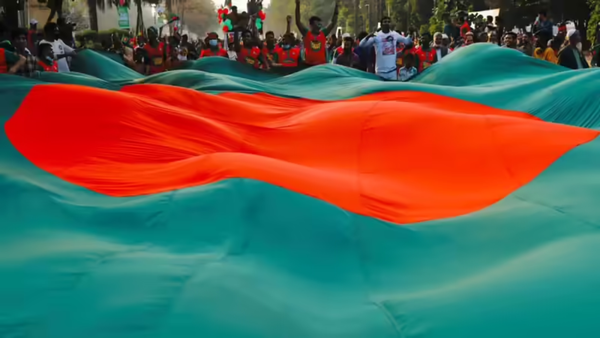One usually gets carried away by the mystic beauty and serenity of Marina Beach. Yet, a stoic building, adjacent to the shore, has played a vital role in spreading the Ramakrishna Movement in south India. Vivekanandar Illam, or Vivekananda House, is the first Ramakrishna Mutt in south India. From being used as ice storage once to a place that is equipped with cutting-edge technology, the museum is thriving in this digital age and ensuring that Swami Vivekananda’s legacy continues to inspire and enlighten future generations.
Earlier known as the Ice House, the building was constructed by Frederic Tudor, of the U.S., in 1842. It was meant to store ice. However, in 1880, his business collapsed, and he sold the property to Biligiri Iyengar, an advocate of the Madras High Court. Biligiri Iyengar reconstructed the building and renamed it Castle Kernen, after a fellow advocate at the court. After delivering a thought-provoking speech at the Parliament of Religions in Chicago, Swami Vivekananda stayed in this house from February 6 to 15, 1897.
A shrine
To honour his visit, Swami Ramakrishnanda, his disciple, with the help of Biligiri Iyengar, erected a shrine for Swami Vivekananda in the basement of the museum. In 1917, the State government acquired it and helped to open a training school for women and a hostel for widows.
“Swami Vivekananda had a vision for India. His aim was to eradicate poverty and uplift people with the help of education,” says Swami Ishapramananda, who has been in charge of the museum since 2019.
A meditation space
The museum presents the teachings from the Vedas, the Upanishads, and significant historical events through beautiful paintings. The room where Swami Vivekananda had stayed has been repurposed into a tranquil meditation space. In 1963, the birth centenary of Swami Vivekananda, the Tamil Nadu government renamed the building as Vivekanandar Illam. Since then, the building has been owned by the State government and is maintained by Ramakrishna Mutt.
Lease extended
In 1997, on the eve of the centenary of Swami Vivekananda’s return to Chennai, the lease of the building, which was initially extended to 10 years by the government, was extended to 99 years. To ensure the teachings of Swami Vivekananda reached the masses, Chief Minister Jayalalithaa inaugurated the Vivekananda Cultural Centre in 2014. Prime Minister Narendra Modi also visited the museum in 2023.
Technological prowess
The profound teachings of Swami Vivekananda have been reimagined and rendered in an immersive digital format, providing an opportunity to people to be a part of his life. Swami Ishapramananda believes that technology is not bad. It depends on how you use it.
The immersive 4D VR film, ‘Tears of Vivekananda’, offers a captivating journey through the life of Swami Vivekananda, showcasing his experience in India and his iconic address at the World’s Parliament of Religions. Visitors can also enjoy two engaging 3D films, titled ‘Parliament of Religions’ and ‘Mind your Mind’. The augmented reality (AR) experience truly stands out, facilitating virtual interactions with the revered monk. Visitors can engage in dialogue by selecting questions from a curated list and receiving responses from Swami Vivekananda as though he were present in the moment.
Vilas Nimsarkar, who is in the city on a short trip from Nagpur, says, “I read about Vivekananda when I was in school, and I was slowly forgetting his values. It is a poignant reminder of the enduring principles of brotherhood and peace.”
Another tourist says that in such polarising times, it is important that peace and humanity be restored, and religions not be pitted against one another.
The museum serves as a valuable resource for individuals eager to delve deeper into the rich Indian knowledge, culture, and the profound struggles faced by Swami Vivekananda.
Beyond preserving the essence of Vivekananda’s teachings and values, it embraces technology to offer a modern and interactive experience.
The museum is open from 10 a.m. to 12.30 p.m. and from 3 p.m. to 7.15 p.m. from Tuesday to Saturday. On Sundays and special days, it is open till 7.30 p.m. It is closed on Monday.
The tickets are ₹40 for children and ₹50 for adults.







